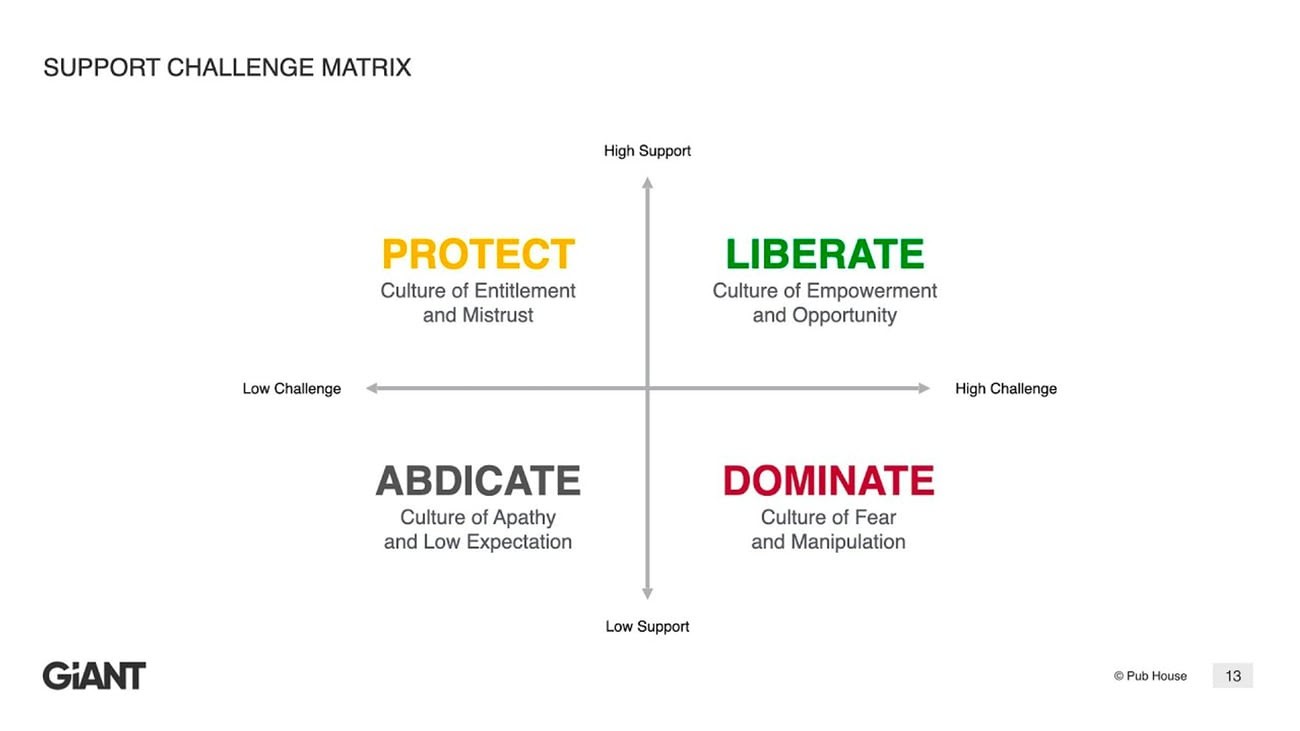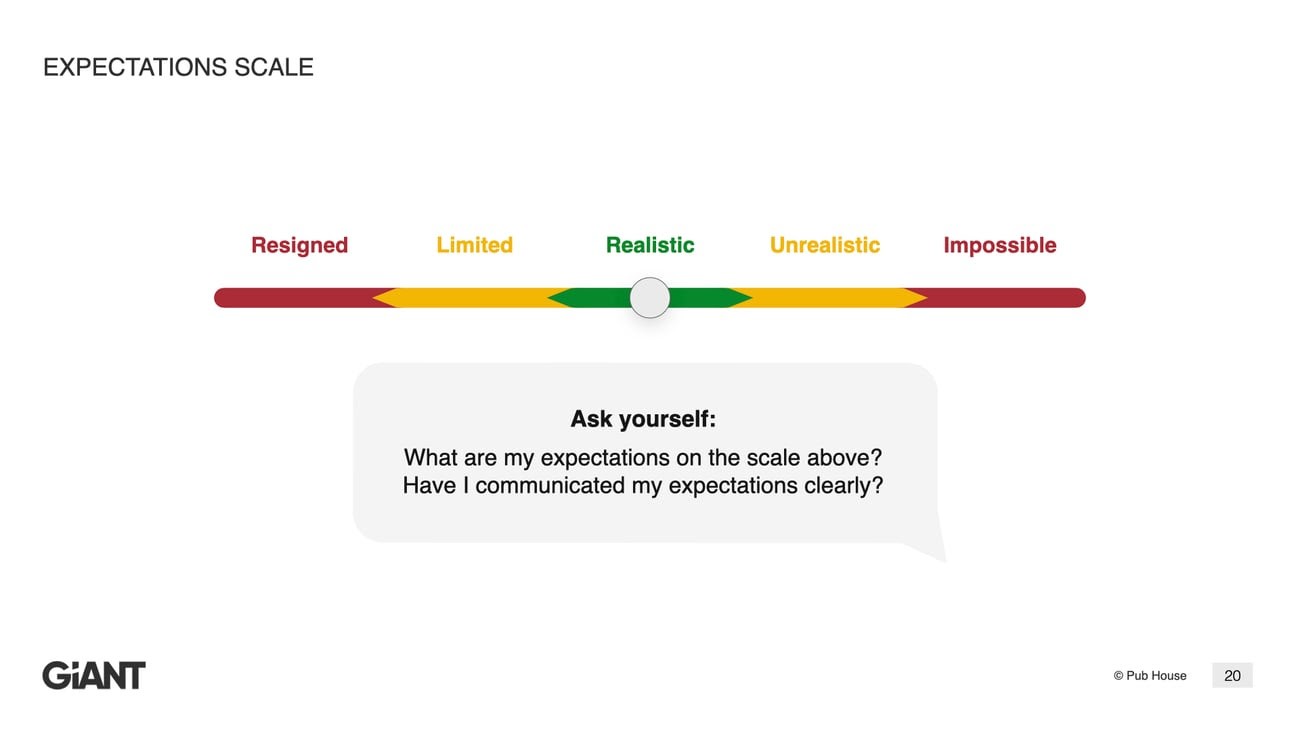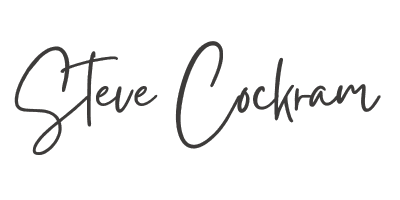Newsletter
/
Relational Intelligence at Work

Steve Cockram
on January 9, 2024
Hey, it's Steve Cockram here.
Welcome to the Relational Intelligence at Work newsletter where every Tuesday you’ll receive an email directly to your inbox from either Jeremie or myself.
This newsletter's primary goal is to support you on your personal growth journey, and to equip you with the skills and knowledge you need to excel as a leader.
If you want relationships to progress healthily in the future, you must deal with any and all issues from the past.
For today, we’re going to get into exactly how to do that.
Let’s dive in…
Improving your relational intelligence and growing in your ability to communicate effectively often means having to address issues from the past.
If communication in a particular relationship has become strained or difficult then issues from the past will have to be dealt with first.
They don’t resolve themselves and they are having a far bigger impact on your relationship in the present than you realise!
If you are prepared to own your part in the failures of the past and communicate your desire to shape a new future for your relationships, you’ll be amazed at what becomes possible.
So , how would I know if there are unresolved issues from the past impacting my relationships? The following three lenses will help you assess your current reality.
1. Relational Trust
Trust means to rely on another person because you feel safe. It is foundational to any relationship because it allows you to be completely vulnerable with another person.
In order to grow relational trust, you must understand relational dynamics and the ability to grow influence. Positive relational dynamics leads to trust, mutual respect, and open communication.
Parents can grow their influence with their children in the same way a leader can grow their influence with members of their team.
It becomes a virtuous cycle, growing relational trust positively impacts the relational dynamics and increases the level of influence.
GiANT’s Support Challenge Matrix is a fantastic lens to help you understand the current level of relational trust you have in a particular relationship.

When we calibrate high challenge AND high support effectively in a relationship, trust and influence grows. We become what we call at GiANT a “Liberator”.
However, none of us are naturally good at offering both High Support and High Challenge.
When we bring more challenge than support in a relationship it reduces relational trust and makes honest and open communication more difficult.
While not as obvious, the same is true when we bring more Support than Challenge.
Relational trust only grows when people experience us as predominantly Liberators in their lives.
If you are not being experienced as a Liberator right now then this is an issue from the past you will have to address.
2. Misaligned Expectations
Expectations are based on past experiences, the realities of today, and the hopes for tomorrow.
New relationships invariably start with unrealistic expectations of what could be.
However, over time as we struggle to communicate effectively we begin to settle for a new normal of more limited expectations in the relationship.
Having tried everything we know, we subconsciously stop believing that things can get better and our relational expectations oscillate between limited and resigned.
We have to honestly acknowledge the current reality of our expectations in the relationship. GiANT’s expectations tool will help.

Have you reached limited or even resigned expectations in a particular relationship? If you have then you’ll have to address the past before seeking to move forward.
3. Power Dynamics
Every relationship has a power dynamic and it’s essential you assess and own that reality in a mature and sensible way.
Are you someone who is empowering the other person in the relationship to be the best they can possibly be or do you have a tendency (usually subconscious) to dominate and overpower them?
Some examples of overpowering behaviour are:
Withholding resources or opportunities
Physical force or intimidation
Emotional manipulation
Verbal aggression
Social pressure
Know-it-allism
The Power Test is a great way to look in the mirror!
Think of one person you’re struggling to communicate effectively with and answer the questions honestly:
Personality Power - As you relate to the person, does your personality tend to: overpower, empower, or under-support this person?
Positional Power - Does your positional power (authority based role) tend to: overpower, empower, or under-support this person?
Personal Presence - Regarding your presence, do you tend to: overpower, empower, or under-support this person?
Real Influence - Do you have real, positive, imaginary, or zero influence in this person’s life?
If, despite your best efforts, you’re struggling to communicate effectively in a relationship then it’s almost inevitable that there are issues from the past that are impacting your present.
Next Steps …
First the good news, if you want to make a breakthrough and are prepared to own your part of the past then I believe the vast majority of relationships can be restored.
Set aside some time where you can be together and uninterrupted, tell them you are committed to improving communication in the relationship and want to truly listen and understand their perspective.
Take time to ask them four questions. Your commitment is to simply listen, ask clarifying questions if needed, but not to challenge or become defensive.
What’s it been like living on the other side of me?
Is there a power imbalance that needs to be addressed?
Has relational trust been broken?
What do I need to apologize for?
If you are brave enough to ask these questions and truly listen to their answers it will change the dynamic of your relationship for good.
That's all for today's message. I hope you enjoyed!
Until next time,
Cheers from London!

P.S.
In theory, we've never been more connected in a digital world today.
Yet, in a strange paradox, we've never been more disconnected.
The Communication Code will give you the tools and resources to rekindle and strengthen your relationships.
Grab your copy below:
Relational Intelligence is the science of highly-functional relationships (HFRs). Learn how to navigate and manage your interactions with others effectively.

